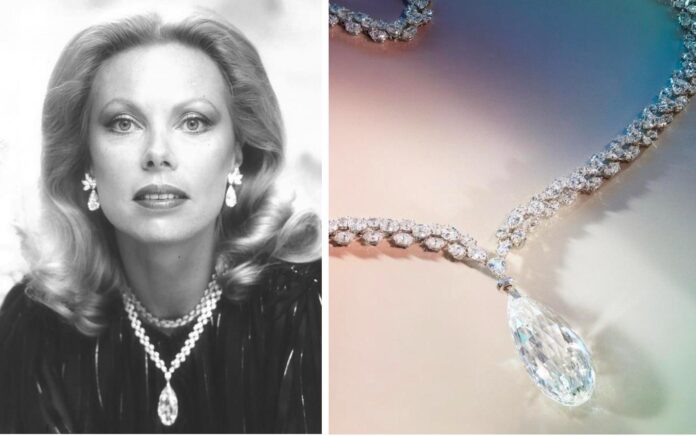Christie’s has cancelled the remaining sales of jewellery from the estate of late Austrian art collector Heidi Horten, after the auction house came under fire over the source of Horten’s wealth, which was accumulated by her late husband in Nazi-era Germany by “Aryanising” Jewish companies.
The bulk of the collection was auctioned off in May over several sales in Geneva that grossed $202m (including fees) to become the most valuable single-owner jewellery collection to ever sell at auction. Christie’s said Thursday (31 August) it would not proceed with further sales of property from Horten’s estate, cancelling the sale of 300 additional jewels that were scheduled for an online auction in November.
“The sale of the Heidi Horten jewellery collection has provoked intense scrutiny, and the reaction to it has deeply affected us and many others, and we will continue to reflect on it,” Anthea Peers, Christie’s president of Europe, the Middle East and Africa, said in a statement. The previous sales raised money for “important support for philanthropic causes, including medical research, children’s welfare and access to the arts”, Christie’s noted.
Shortly after Christie’s announced the sale of Horten’s famed jewellery collection in March of this year, the auction house faced a wave of criticism from observers who accused the auction house of underplaying how Horten’s late husband, Helmut Horten, made his fortune in Nazi-era Germany. Helmut became a wealthy retail magnate partly by acquiring Jewish-owned department stores for sometimes below-market prices amid the “Aryanisation” of Germany, when Jewish peoples’ property was seized and handed over to non-Jews.
Initial promotional materials from Christie’s described Helmut as “a German entrepreneur and philanthropist”. The auction house later amended their descriptions to include mention of his “well documented” business practices during the Nazi era, “when he purchased Jewish businesses sold under duress”. When Helmut died in 1987, Horten inherited $1bn.
After outcry from clients like Cathy Lasry, the wife of billionaire financier Marc Lasry, Christie’s pledged to donate “a significant contribution” to Holocaust research and education groups. In July the Tel Aviv Museum of Art called off an event with Christie’s focused on art looted by Nazis, telling media that the museum was “attentive to criticism and committed to public sensitivity” after Jewish groups and Holocaust survivors complained. Yad Vashem, Israel’s national memorial to Holocaust victims, reportedly declined to accept a donation from Christie’s.
Horten died last year at age 81. Representatives of her collection did not immediately respond to a request for comment.

























